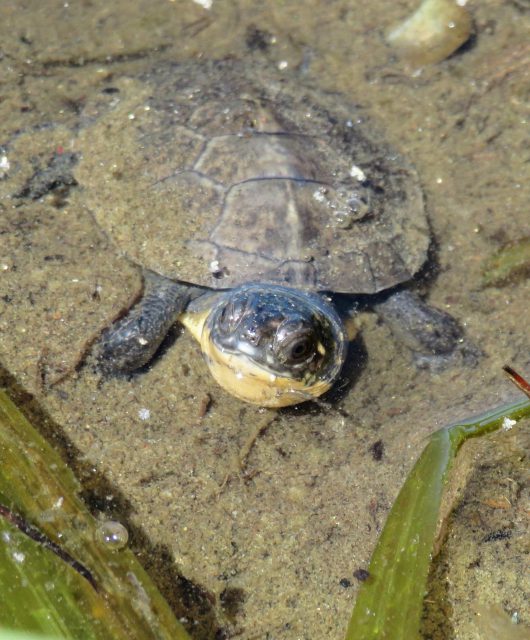The Fierce Lives of Hummingbirds
Are hummingbirds small and cute? Yes. Are they colourful? Yes, usually, but more on that soon. Are they a key component to ecosystems and yet declining in most of North America? Yes and yes. Would hummingbirds achieve world dominance if they were given half a chance? Absolutely. The big secret among bird enthusiasts is that hummingbirds are the avian equivalent to our historical Julius Caesar. Brave, not big, and nasty. But, to mis-quote a certain bard, I am here to praise Caesar, not to bury him.
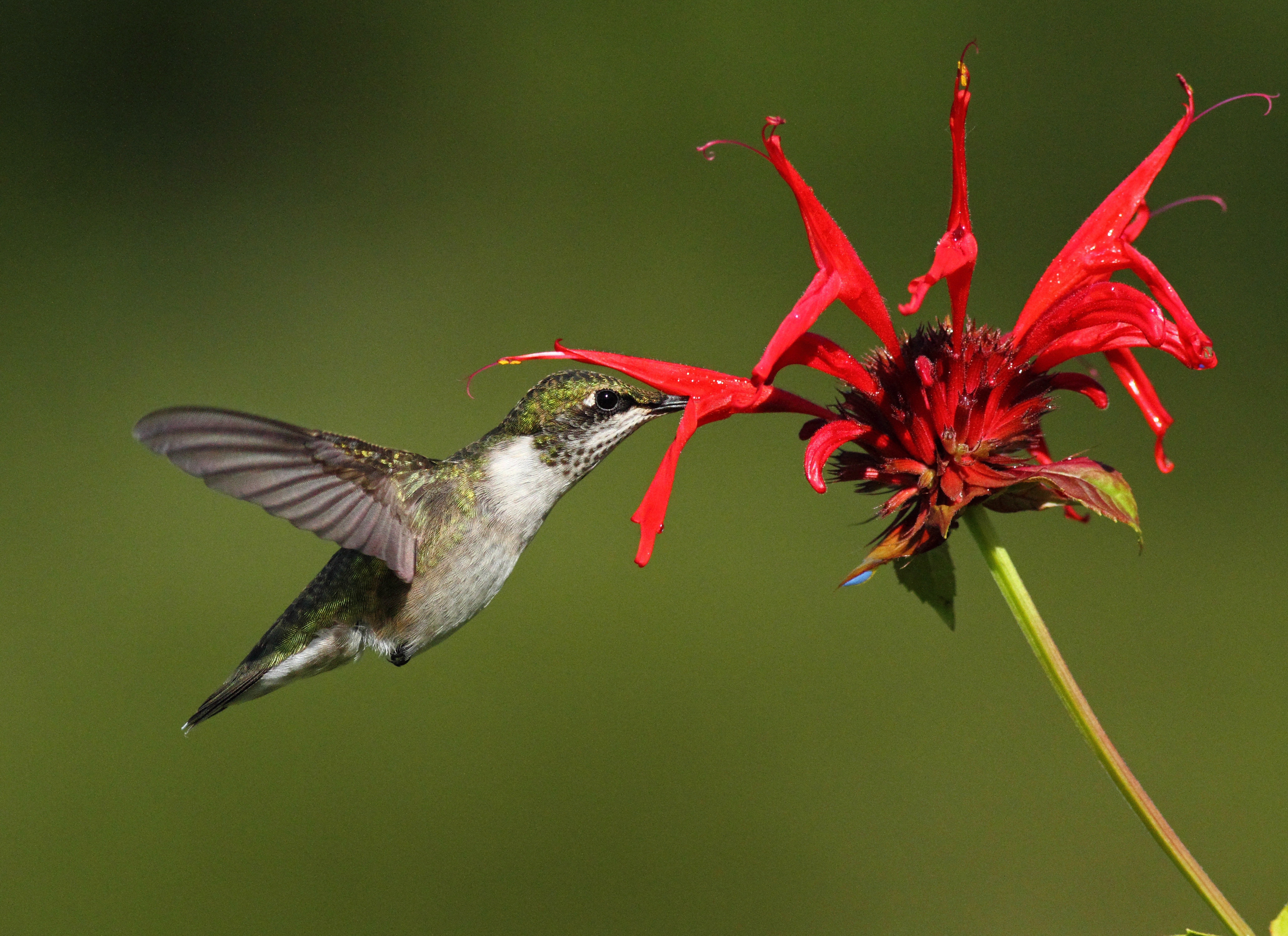
If you live in southern Canada, from the Maritimes through to the Rocky Mountains, you will be familiar with the Ruby-throated Hummingbird (Archilochus colubris). About the size of a Halloween candy bar, but weighing less than a nickel, the male of the species displays an iridescent (ruby) red throat (called a “gorget” after a knight’s neck guard) despite not having a single red feather. How is this possible? The males don’t have red pigments in their gorget feathers, but rather their feathers are coated with a thin film that glint red when angled correctly to sunlight. Bob Sundstrom of the Audubon Society compared the ruby hue to the colours of oil reflecting light in a puddle. Only male Ruby-throated Hummingbirds go to such lengths. The females are an olive-green colour.
Migration Going Downhill
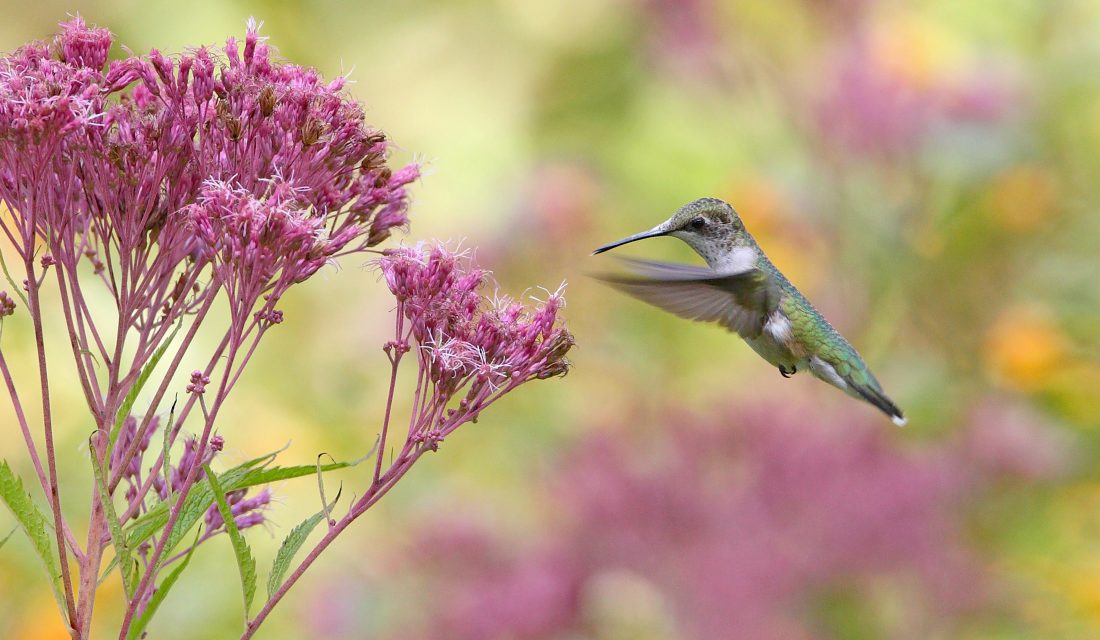
A recent study published by Simon English and colleagues of the Canadian Wildlife Service in Victoria in the scientific journal Nature shows that Ruby-throated Hummingbird populations have been declining steadily for the past 20 years or so. This follows a period of steady increases from 1970 to the early 2000s. The reason for this decline is difficult to know, but English and his colleagues suspect habitat loss in their winter habitat and exposure to agrochemicals during the summer. Despite their pocket-change size, Ruby-throated Hummingbirds migrate< long distances each year from the dry tropical forests of Central America in winter to the fields and woodlands of southern Canada in summer. In both places they play a vital ecological role. If they continue to decline, the service they provide will also disappear.
That vital role is pollination. Their year-round and insatiable thirst for nectar, to keep that throat glistening and those little wings beating, has them visiting thousands of flowers every day. This spreads pollen that will transform flowers into seeds that will either make more flowers (pretty) or, importantly for people, food or oil. Ruby-throated Hummingbirds are particularly important to pollinate flowering plants of the Carolinian Forests in the east and some sage plants in the west.
Chilling Effects of Climate Change
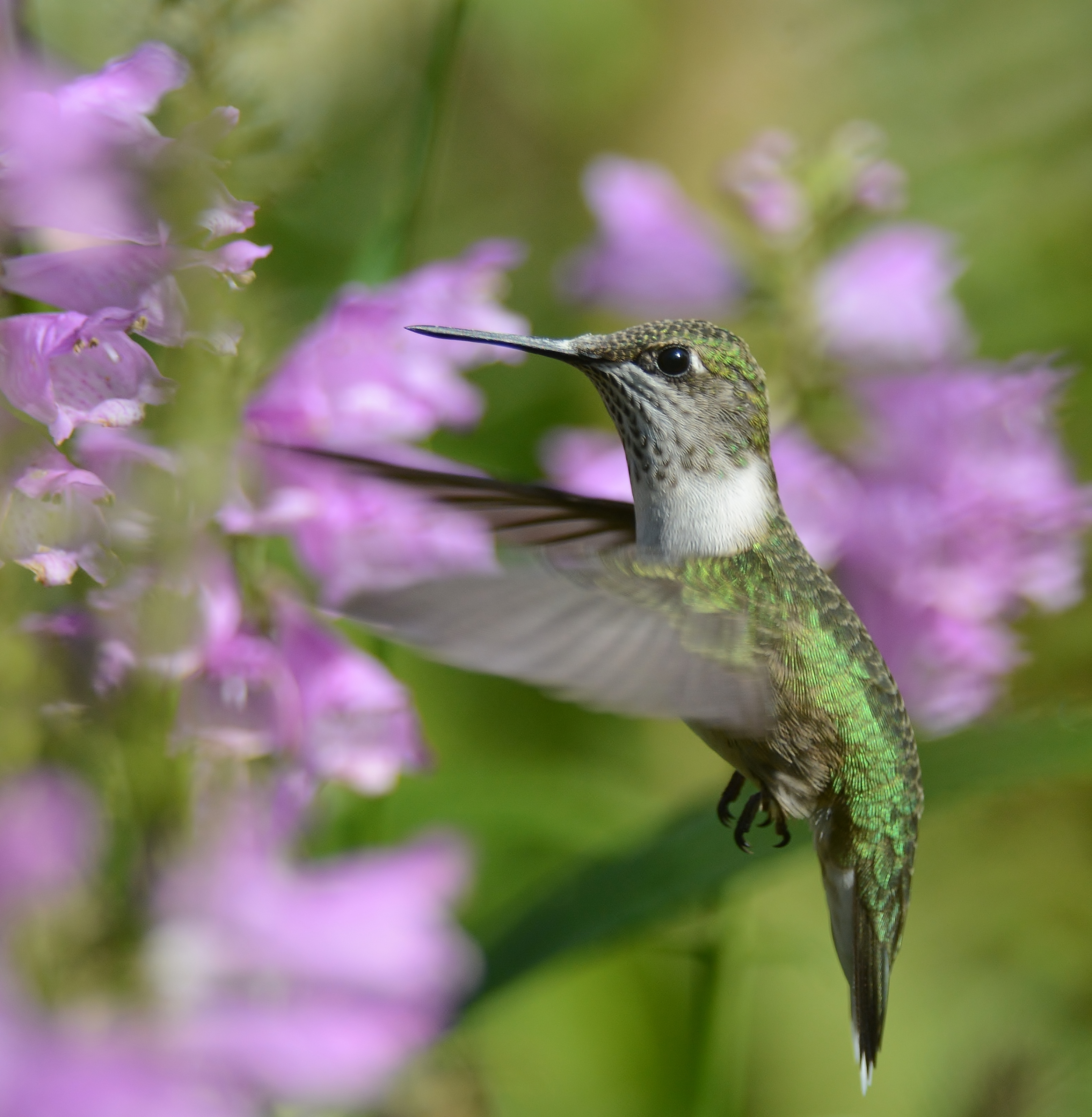
Another threat to populations of these diminutive demagogues is climate change. Studying Ruby-throated Hummingbird migrations in eastern Pennsylvania, Jennifer Probst and colleagues found that their fall migration shifted to a significantly earlier date from 1990 to 2014. Others have noted similar shifts in the timing of their spring migration. These changes, synchronized to changing climate signals, will eventually have hummingbirds migrating out of time with flowering seasons at both their summer and winter habitats.
Feathered and Feisty
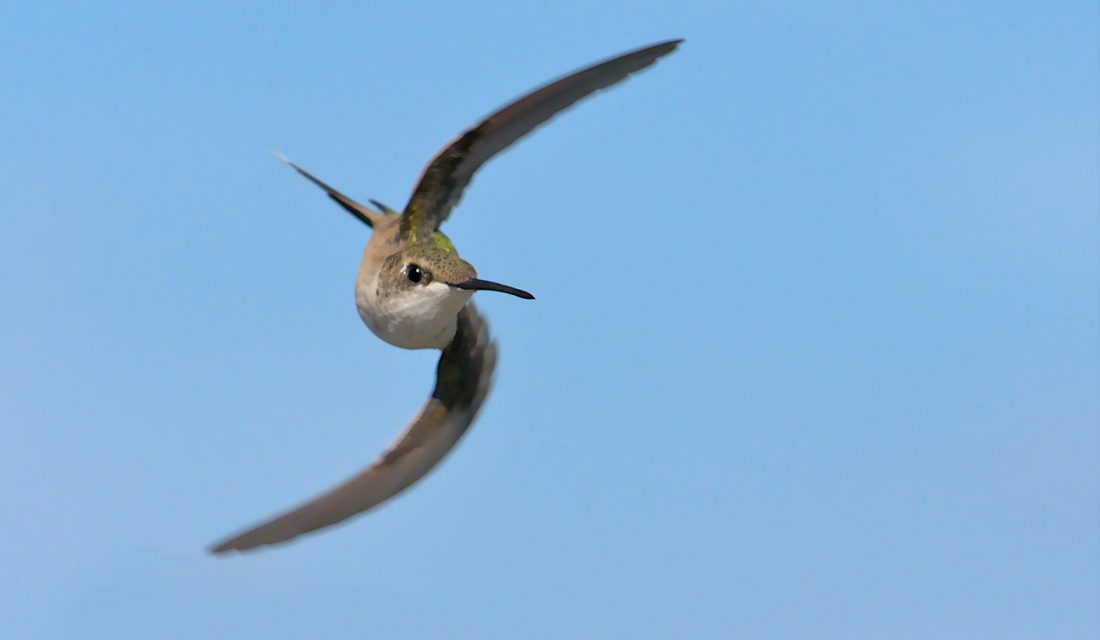
Have I mentioned their tyrannical tendencies? This has fascinated scientists for centuries, and there are dozens of descriptions of how, in particular but not exclusively, male Ruby-throated Hummingbirds defend their turf during the breeding season. If you linger near their nest or favourite flower bed, they will dive bomb you relentlessly. If you are a bit late in refilling your feeder, they will harass you without mercy until you fulfil your sworn duty. It doesn’t matter if you are a crow, robin, magpie, human, or bald eagle, you will bow to the Ruby-throated Hummingbird’s obvious dominance. Red hat wearing sunbathers beware.
Delusions of grandeur or not, Ruby-throated Hummingbirds need our love. Cutting down on backyard and agricultural pesticides will help. Doing your best to reduce your carbon footprint, slowing climate change is also an important step. Unlike Marc Antony in Shakespeare’s famous depiction, I have no desire to speak at this little Caesar’s funeral.


